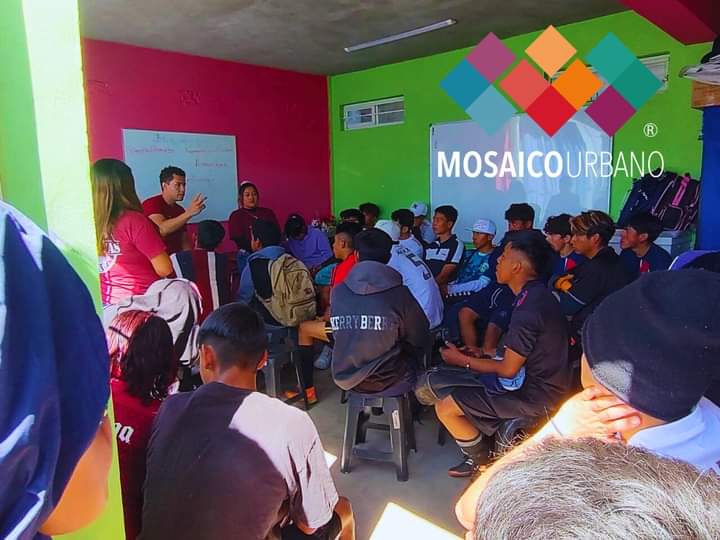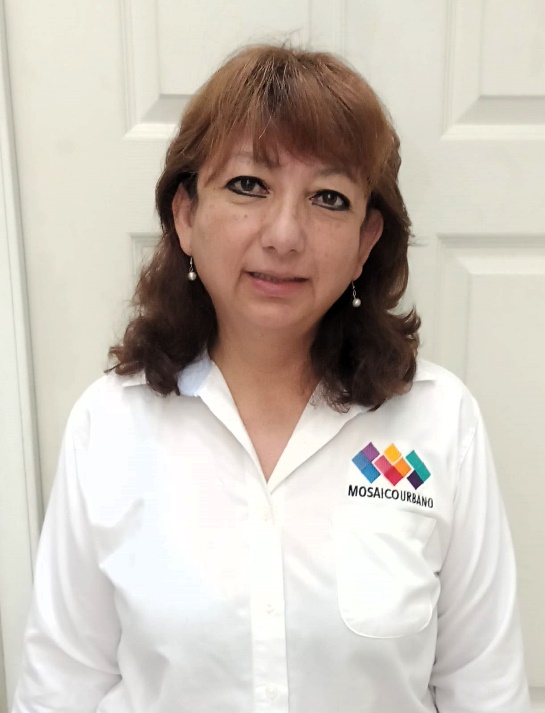Mosaico Urbano Mexico
- Mexico City, Mexico

Organizational Overview
Mosaico Urbano Mexico, originally founded in 2006 under another name, operates on the eastern side of Mexico City, particularly in the Chimalhuacan and Los Reyes La Paz municipalities. The organization’s mission is to transform fragile urban areas into SHALOM cities by developing leaders and social structures that create lasting, multifaceted change. Their approach is rooted in the Missio Dei (God's mission) theology and focuses on addressing the root causes of urban poverty and violence. Mosaico Urbano Mexico employs several primary strategies: planting and equipping faith communities, promoting youth and children as change agents through kids, arts and sports clubs, strengthening civil society to engage in community renewal, developing urban leadership and offering vocational opportunities to young adults. Through these initiatives, Mosaico Urbano Mexico aims to create safe, resilient, and inclusive communities. By leveraging local resources and fostering collaboration with diverse stakeholders, the organization seeks to generate sustainable impact and drive holistic transformation in fragile communities on the eastern side of Mexico City.
Beneficiary Population
- Urban Poor
- Children & Youth
- Women
- Families
- Leaders
- Entrepreneurs
Focus Areas
- Spiritual Transformation & Faith Communities
- Leadership Development & Training
- Community Development
- People & Family-Centered Development
- Wealth Creation & Economic Development
Organizational Track Record
Mosaico Urbano Mexico began its journey in 2006 within an urban poor community, in Chimalhuacan, on the outskirts of Mexico City. Initially established as a beta site, it aimed to develop a holistic change model to address the deep-rooted issues of poverty, hopelessness, violence, fragmentation, and injustice. By late 2012, this change model was successfully replicated in Los Reyes La Paz, a neighboring municipality. It was here that Mosaico Urbano’s change model model fully took shape, addressing daily needs, leveraging local resources, and positively impacting youth, children, and families. Faith communities were mobilized, and local leaders emerged, taking ownership of their communities' transformation. Through these efforts, over 15,000 people gained access to essential services like public water and drainage systems, shifting power dynamics and achieving changes once deemed impossible.
Mosaico Urbano’s main approach has been to empower local leaders as change agents within their neighborhoods, focusing on various areas such as youth and children’s work, church planting, family and community development, infrastructure improvement, emotional recovery, public health, violence prevention, leadership training, theological education, peace-building, and advocacy. In response to the devastating earthquakes of September 2017, the organization adapted their change model to a disaster relief context, providing emotional first aid to over 2,000 residents, assisting in the demolition of 207 uninhabitable homes, ensuring the rebuilding of 200 homes, and helping a municipality operationalize civic protection mechanisms. In 2018 the organization’s advocacy work gained momentum, introducing legislation for a national law promoting citizen participation and anticorruption measures, advancing the “right to the city” for all, and contributing to the U.N. Sustainable Development Goal #11: “Make cities and human settlements inclusive, safe, resilient, and sustainable.” During its first 16 years of operation, Mosaico Urbano Mexico impacted over 50,000 people across several municipalities in eastern Mexico City and the state of Morelos, partnering with organizations like Habitat for Humanity, the Monterrey Institute for Technology, World Vision, and Mexico United Against Delinquency.
Over the past three years, Mosaico Urbano Mexico faced a significant organizational crisis that nearly led to its collapse. However, the relentless dedication of key local leaders and volunteers, who remained steadfast to the vision and tirelessly worked towards its fulfillment, ensured the organization’s survival. Today, Mosaico Urbano Mexico is in a rebuilding phase, refining its interventions in three marginalized urban communities, and building on the foundation laid in previous years.
Key Leader Biosketch
Born and raised in Mexico City, Veronica balanced her roles as a mother of two daughters, a wife, and a businesswoman from 1990 to 2009. For many years, she managed a specialized automotive workshop focused on vehicle inspection and catalytic converters, driven by her commitment to environmental care and her desire to contribute to a responsible society that upholds values for future generations. In 2012, Veronica served as an Electoral Assistant Trainer for the National Electoral Institute (INE) in District 39 of the State of Mexico, where she participated in the only nationwide recount, an experience that deepened her understanding of electoral transparency. In 2013, she transitioned to the non-profit sector, joining Transformación Urbana Internacional in the strategic relations area and collaborating closely with Mosaico Urbano. Her mission was to help transform fragile urban communities into strong, resilient neighborhoods. In addition to providing administrative and logistical support, Veronica served as an Electoral Observer in four electoral processes, managed wheelchair distribution projects, and oversaw housing improvement initiatives, including the provision of water tanks and solar heaters to vulnerable communities in partnership with Fundación Mariana Trinitaria.
Since January 2022, Veronica has led Mosaico Urbano in its renewed structure, continuing to work in vulnerable communities with the aim of transforming them into Shalom communities. Her work focuses on civic engagement, social cohesion, and spiritual transformation by sharing the message of God’s love. Currently, she and her team are actively working in three socially marginalized areas in the highlands of the municipality of Los Reyes La Paz, in the State of Mexico. In the most recent electoral process, Veronica also served as an alternate Electoral Counselor.
For the past nine years, Veronica has been a member of the Christian church Ministerio Internacional Generación que Conquista in Ixtapaluca. In January 2023, she was appointed as a cell group leader, a role she continues to thoroughly enjoy. She is also participating in the church’s leadership training program in biblical education, having recently completed the third level. Veronica is passionate about fostering respect and love among individuals. She believes that active citizenship, collaboration, and sharing the message of God’s love are essential for building a better society.

Funding History with Camino Alliance
In 2020, Camino Alliance secured a $37,000 grant for Mosaico Urbano Colombia to support the construction and development of a retreat and training center in the Monte de Marias region that long-term could also function to promote ecotourism. This center aims to be used to strengthen come alongside churches, ministries and local organizations working in urban poverty contexts in Barranquilla. The impact of this grant has allowed the organization to make progress in their mission and achieve the following milestones: completed the architectural design for the center, built 90% of the facility including five bedrooms, six bathrooms, a living room with an observation deck, and a kitchen. Additionally, designed and installed 600 meters of electrical lines with high tension posts from the main road to the property; constructed 500 meters of barbed wire fencing, and adapted 300 meters of access roads to the place. They furthermore planted ½ ha of bananas and another ½ ha of avocados, conducted Missio Dei trainings for youth and church leaders, and engaged pastors in strategic planning sessions and spiritual retreats. These accomplishments reflect the transformative impact of the grant, facilitating the development of infrastructure, enhancing leadership capabilities, and setting the basis for sustainable income generation for the organization.
